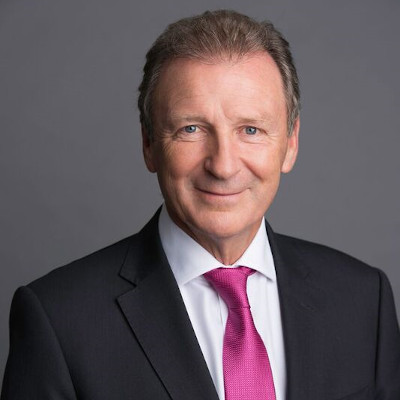Rebuilding economies and tackling inequality in the post-covid world


Since the 2008 financial crisis, many countries have experienced slow economic growth, flat-lining household incomes and weakening job security. These problems have their own painful consequences, fostering social discord, public disillusionment and the rise of populist politicians. And now the arrival of COVID-19, which hits the weakest hardest, threatens to exacerbate existing financial, wellbeing and health inequalities.
So as countries seek to rebuild their economies – and, ultimately, to close their budget deficits – in the wake of the pandemic, it will be important to guard against a further rise in inequality. How, for example, can civil servants ensure that pandemic stimulus spending reaches the most vulnerable? How could the worst-hit workers and businesses be supported to find new income streams? Which tax and social security policies could promote growth while protecting the weakest? And which public sector reforms could ensure that essential services, such as social care, remain accessible and effective?
At this Global Government Forum webinar, civil service leaders from around the world considered the policies and services that could foster truly inclusive growth – ensuring that as we exit this crisis, we do not repeat the errors of the last.
Panel
Webinar chair Siobhan Benita, former UK senior civil servant

Siobhan Benita was a senior civil servant with over 15 years’ Whitehall experience. She worked in many of the major delivery departments, including Transport, Environment, Health and Local Government. She also had senior roles at the heart of Government in the Cabinet Office and HM Treasury, including supporting the then Cabinet Secretary, Lord O’Donnell to lead work on Civil Service reform and strategy. Siobhan left the Civil Service to run as an independent candidate in the Mayor of London election. She subsequently joined her alma mater, Warwick University as Chief Strategy Officer of Warwick in London and Co-Director of the Warwick Policy Lab.
Lord Gus O’Donnell, former UK Cabinet Secretary and head of the UK civil service

Gus O’Donnell is Chairman of Frontier Economics, Strategic Advisor to TD Bank, Executive Director and Strategic Advisor to Brookfield Asset Management, Chair of PwC’s Public Interest Body (PIB), President of the Council of the Institute for Fiscal Studies (IFS), Chair of the Board of Trustees for Pro Bono Economics, Visiting Professor at LSE and UCL, a member of the Economist Trust, and Chair of the Behavioural Insights Team Advisory Board at the Cabinet Office. Gus was Cabinet Secretary and Head of the British Civil Service from 2005-2011. In 2010, he oversaw the introduction of the first coalition government since the Second World War. Previously, he was Permanent Secretary of the Treasury from 2002-2005 and served on the IMF and World Bank Boards. Gus studied Economics at Warwick University and Nuffield College, Oxford, then lectured at Glasgow University. Knighted in 2005, Gus was appointed to the House of Lords in 2012, sitting as a crossbencher (i.e. not affiliated to any political party). Gus is an Honorary Fellow of the British Academy and Fellow of the Academy of Social Sciences.
Clare Moriarty, former UK Permanent Secretary of Department for the Environment, Food and Rural Affairs and former head of Department for Exiting the EU

Clare is known as a leader of transformation in organisations facing major challenges, at scale and in complex, politically sensitive environments. Her early career was spent mainly in the Department of Health and the NHS, with senior roles in the Ministry of Justice and the Department for Transport. She was Permanent Secretary of the Department for the Environment, Food and Rural Affairs from 2015 to 2019, and of the Department for Exiting the EU until its closure in early 2020. Her current projects include chairing the Health Foundation’s Covid-19 Impact Inquiry which is exploring how inequalities have affected experience of the pandemic. Clare is recognised for her work on diversity and inclusion and has spoken extensively on leadership, in particular the importance of valuing emotion and creating space for difference. She was made a Dame Commander of the Order of the Bath in the 2020 Birthday Honours.
Dr Stephanie Allen, Global Public Health & Social Services Leader, Deloitte

Dr Stephanie Allen is the Deloitte Global Healthcare Leader. Deloitte has the largest professional services health care practice in the world. Deloitte has been independently recognised for its global and holistic approach to health care analytics to deliver new insights, for the way in which it is integrating exponential technologies to drive sustainable quality and cost improvements, and for its extensive clinical expertise working on contemporary models of care. Stephanie also leads the Health & Human Services Practice for Australia and is a consulting partner with over 25 years’ extensive experience in health care in both the UK and Australia.
Jennifer Duncan, Vice President – Government Innovation (Global), Mastercard

Jennifer has spent most of her career in government affairs and communications. She joined Mastercard in 2014 and in her current role focuses on addressing societal problems facing governments, the wider public sector and the citizens they serve – putting policy into practice. In 2020 she was named as the payments industry’s Emerging Female Leader. She is currently leading Mastercard’s work with governments around the world to respond to the Covid-19 pandemic. Jennifer is a passionate believer in public private partnerships and has been involved in a wide range of policy issues including contactless transport, social welfare, digital procurement, financial inclusion, security and sustainability. Jennifer is a member of the UK Government’s ‘Inclusive Economy Partnership Financial Inclusion Steering Group’ and she led a govt/industry initiative to reduce a card fraud for the UK Home Office (2016-2018).
Albin Kainelainen, Director-general, Economic Affairs Department, Ministry of Finance, Sweden

Albin Kainelainen is Director-general for the Economic Affairs Department at the Swedish Ministry of Finance. He previously held different positions within the Swedish government offices, mainly working with fiscal policy frameworks.









